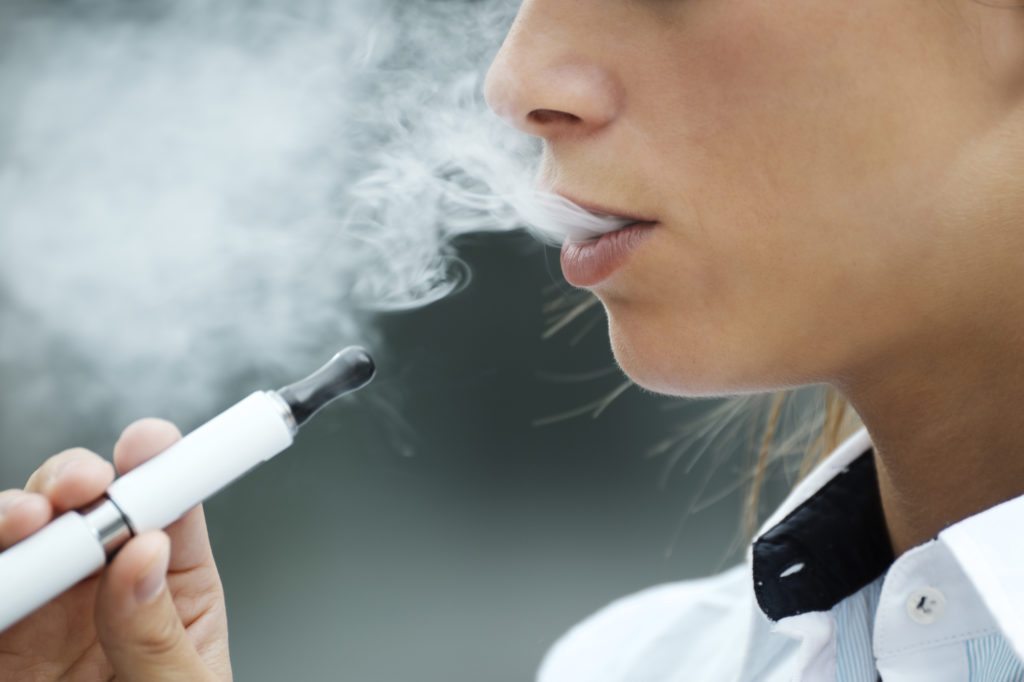Save Your Smile and Stop Smoking


Smoking ranks as the worst habit you can have, and the effects smoking has on your oral health often lead to serious problems. Not only does smoking contribute to a number of cardiovascular and lung problems, the habit also leads to the development of lesions in the mouth and greatly increases your risk for both tooth decay and gum disease. For patients of Dr. McLeod, dentist in Newberg Oregon, you should seriously consider giving up the habit before smoking permanently ruins your oral and overall health.
Not only does smoking work to undermine your oral health, but the habit also makes it more difficult for Dr. McLeod to successfully treat the damage the habits causes. Tooth loss ranks as a common problem for patient who smoke. Dental implants offer one of the most effective solutions for treating tooth loss. Unfortunately, implant failure is higher among smokers when compared to those who do not smoke. This means that smoking not only undermines the permanent health of your smile, the habit also makes it harder to restore your smile back to health.
This type of dual deficiency helps to elevate smoking to its position as the most destructive habit for your oral health.
Naturally, when you stop smoking, not only do you decrease the risk for developing gum disease and tooth loss, you also significantly reduce your risk for developing oral and lung cancers.
In order to keep your teeth and gums working and healthy, smokers must receive regular dental care from Dr. McLeod while trying to quit as soon as possible.
If what we’ve mentioned so far isn’t enough to convince you of the need to quit, here are a few of the biggest effects smoking can have on your oral health.
Tooth Decay
Studies have found that tobacco smoke contains between 6,500 to 7,000 different chemicals, including acetone, acetic acid, arsenic, butane, carbon monoxide, cadmium, lead, ammonia benzene, formaldehyde, nicotine, methanol, tar and so much more. These types of harsh chemicals actively work to breakdown tooth enamel, making your teeth more susceptible to decay. Others toxic to your health, such as arsenic and carbon monoxide.
The higher your risk for tooth decay the more likely you become to actually lose teeth. Once a gap appears in your smile, the teeth that neighbor the space will start to slowly shift into the now vacant position. As your teeth shift to file the void, you can develop a misaligned bite that makes eating a chewing difficult.
Gum Disease
The chemicals in tobacco, combined with the irritation smoke causes your gum tissue, can lead to the degeneration of the soft tissue and bone structure that hold your teeth into position., Smoking also works to interfere with the typical functions performed by cells in gum tissue. This interference makes smokers more likely to develop an infection like gum disease, while also impacting the flow of blood to the gums. Without proper blood flow, the body has a harder time healing the damaged caused by smoking.
Tooth Discoloration
The nicotine and tar in cigarettes can cause the teeth of smokers to become discolored in a short period of time. Smoking also creates an environment in the mouth that allows plaque to produce far more quickly when compared to the mouth of a nonsmoker. Smoking not only encourages plaque growth, it also makes the sticky biofilm more resilient and harder to remove during brushing. When plaque is allowed to accumulate on our teeth, it hardens into tartar, a yellowish substance that also works to discolor the complexion of a smile.
Oral Cancer
Oral cancer contributes to the deaths of 13,500 people a year in the U.S. When compared to other forms of the disease, oral cancer has a far higher mortality rate than more common cancers, including breast and prostate. One of the reasons why oral cancer has such a high mortality rate is due to how late in the disease’s progression a patient usually receives a diagnosis.
Fortunately, most types of oral cancer can be easily treated if spotted and diagnosed in time. But if the patient is a smoker, the cancer can spread to other parts of the body, including the lymphatic system.
Don’t let smoking ruin your oral and overall health. Takes the steps necessary to curb this harmful habit.
Your health and your smile will be glad that you did.
